
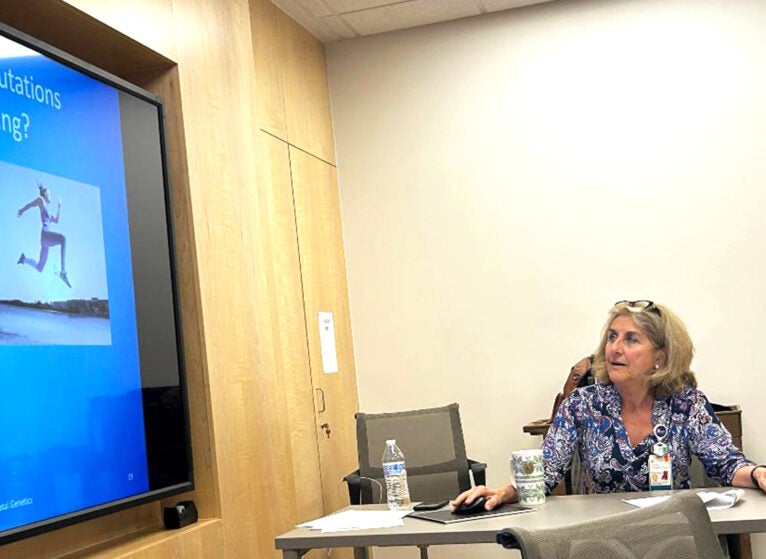
Hope at Work: Pediatrician Turned Interpreter Bridges Communication Gaps to Ensure Belonging for All
Our Connect article series “Hope at Work” showcases inspiring stories about how every one of our team members contributes to UVA Health’s 10-year Strategic Plan: “One Future Together|Health and Hope for All.” No matter where you work, you have an opportunity to inspire hope in others. These stories show how.
Twenty-one years ago, UVA Health Certified Medical Interpreter Sylvana Fernandez-Ellauri made the life-altering decision to immigrate from her home country of Uruguay to the United States.
A practicing pediatrician in Uruguay for more than a dozen years, Sylvana spent countless nights and weekends riding in the back of an ambulance to patients’ homes where she would evaluate their health to determine if she could treat them remotely or if they needed to be transported to a hospital. The stress of the job was only compounded by the chaos rampant in her country — unilateral violation of contracts, erratic pay. She feared she’d be unable to pay the mortgage for the home where she lived with her three children.
“It was the choice I had to make to save my home from having a lien. But it was not a choice between medicine and not practicing. I was looking for a better chance, a more stable situation,” Sylvana recalls.
In 2002, 45-year-old Sylvana and her 12-year-old son arrived in Northern Virginia, where she began working as an administrative assistant for a family-run company. She missed Uruguay, her two adult daughters, and her pediatric medical practice. But her job in the U.S. provided stability and a salary. One day, Sylvana learned about an opening for a medical interpreter position at Inova health systems.
“I thought it was the perfect marriage of my medical knowledge and experience paired with my ability to communicate to patients who had limited English proficiency,” Sylvana explains.
In 2007, she enrolled in a 40-hour medical interpretation training course at Northern Virginia Area Health Education Center (NVAHEC), and even before she’d completed the program, her phone rang with requests from the local hospital system and public school system for her interpretation skills. For several years, Sylvana gained experience working in health and community settings in the Washington, D.C. metropolitan area. She also became an interpreter trainer for NVAHEC — teaching medical terminology and anatomy and physiology.
Also during that time, her relationship with her Charlottesville-based partner become serious, and the two of them kept an eye out for health interpretation positions at UVA Health. Soon after they married, Sylvana applied for and was offered a job in Charlottesville.
Ten years later, Sylvana continues to deliver on UVA Health’s mission of “transforming health and delivering hope for all Virginians and beyond” by promoting health equity, helping to cultivate belonging for every patient, working tirelessly to increase access to care, and enhancing the patient experience.
As Sylvana says, “There cannot be any regrets. In some way — you are where you’re meant to be.”
Promoting Health Equity, Cultivating Belonging For Every Patient
Sylvana and other medical interpreters facilitate communication between two or more people who not only speak different languages, but also come from different cultures and healthcare systems. The profession’s overarching goal is to ensure that people who are Limited English Proficient (LEP) have access to healthcare.
Sylvana’s typical day is varied and unpredictable. One moment she may help an obstetric team and a mother in labor to deliver a healthy baby; another, you may find her in a diabetes education session or celebrating someone's graduation from chemotherapy and clean surveillance scans. The Pediatric Intensive Care Unit may ask her to interpret a meeting during which the care team will be delivering heartbreaking news to a young patient’s family.
Sylvana sums it up: “Lots of emotions, challenging circumstances, and highly specialized terminology. Fortunately, at the end of the day, there's a lot of gratitude and positive outcomes as well!”
As an immigrant to the United States, Sylvana’s empathy shines through in every one of her patient encounters. She says the team of 12 medical interpreters understands the weight of their responsibilities: “We know the needs and circumstances of our people — a community made up in its vast majority by immigrants who face all sorts of challenges and disadvantages, the language barrier being just one of them. Giving voice to their healthcare needs and seeing those healthcare needs eventually met or significantly improved is both a huge responsibility and an honor at the same time.”
Given the emotional nature of some of Sylvana’s encounters, she admits one of the biggest challenges of her job is to remain professional in circumstances when she’d like to hug a patient or hold their hand to help them cope with difficult information. She also must ensure patients truly understand what the provider is saying or explaining without stepping outside of her professional boundaries. “In some ways it’s like being an actress. You take on a certain role. You play the role of the patient, and you play the role of the provider — always honoring the meaning, tone, and intention of each party’s message.”
Increasing Access to Care, Enhancing the Patient Experience
In 2015, Sylvana became a nationally certified Spanish interpreter, and in 2018, a licensed interpreter trainer — both for community and medical interpretation after completing a "training of trainers" offered by Cross Cultural Communication.
She recently coordinated and presented a workshop for Spanish interpreters at UVA Health to improve the interpretation process for non-English speaking patients with a focus on prenatal genetic counseling.
Logan Karns, Licensed Certified Genetic Counselor at UVA Health, says the workshop was a long time in the making — Sylvana brought it up a year ago. "Her passion to make this happen kept the wheels turning and ultimately got us all to two, well-executed, and meaningful workshops. With her experience as a professional medical interpreter, and her medical background, she was the perfect person to bring this to fruition!”
Logan reports the work that genetic counselors do at UVA Health often involves abstract concepts, unfamiliar terms, and difficult, painful conversations. “It is complicated in any situation, but especially so with our non-English speaking patients. This workshop was an opportunity to bring together all of us who do this work, and to educate and discuss ways to improve the care of our Spanish speaking patients who face barriers to equitable healthcare.”
Sylvana plans to expand this workshop to other settings, and to other groups, including interpreters of other languages. She also wants to prepare workshops focusing on genetic issues. She has a personal goal to develop a training course entitled, “Interpreting in Breast Care Settings.” As if that’s not a full workload, she's also working on developing a training to address “Interpreting in Family Meetings,” which Sylvana describes as one of the most challenging and emotionally-loaded encounters any member of the healthcare team has to facilitate.
As Sylvana says, “There is a reason I am at this crossroad, in this moment, and that my experience can be used this way.”
More Q&A With Sylvana Fernandez-Ellauri:
What would surprise people about your job?
One thing that may surprise people is to realize interpreters are not merely bilingual people. As I jokingly refer to it many times, we are not "walking Merriam-Websters" who magically land in a room to convert messages back and forth from one language to another. You see, medical interpreting is a profession. A relatively young one, but nationally recognized and regulated.
Throughout our training and further practice, we acquire a comprehensive set of skills, techniques, and knowledge that ensure quality and adherence to a professional code of ethics while striving to minimize fatal error in medical practice because of misunderstanding. Another surprising aspect in some way is what I mentioned above regarding the vast palette of emotions interpreters' brains and souls may have to go through on any given day.
I can combine the skills that an interpreter needs to master, and the medical concepts we need to be there. Context really supports the meaning of what you are saying. One word in a certain context represents one meaning, while it may have a totally different meaning in another context.
Is there anything you miss about being a pediatrician?
I love to interpret but I miss the practice of medicine and the educational piece of medicine. As a pediatrician, I educated parents, and I taught them how to interpret circumstances and not to freak out when their children had certain symptoms. I miss being that trusted resource for parents.
Rest and resilience are critical to our work at UVA Health — what do you do in your free time?
Most definitely, nurturing the mind and the soul and resting to restore the inner balance is a very important aspect of maintaining our professional sharpness and health. I currently pray more, read more, and sleep more than I used to, and I find all of this extremely fulfilling. I am also an avid workout fan, from barre and yoga to strengthening and spinning routines.
Are you, or a team member, ready to share a UVA Health story of inspiring “Hope at Work”? Submit interest to this form for possible consideration for a future Q&A installment in this Connect series.
Latest News

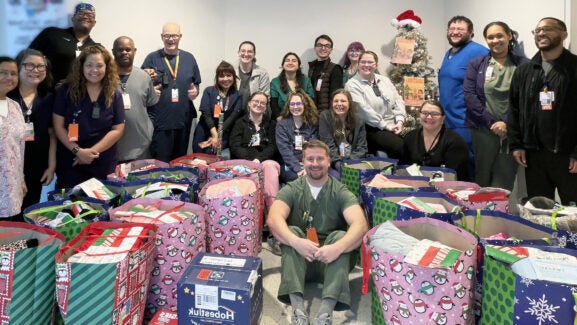
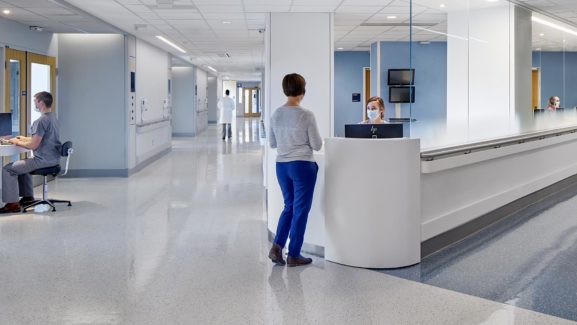
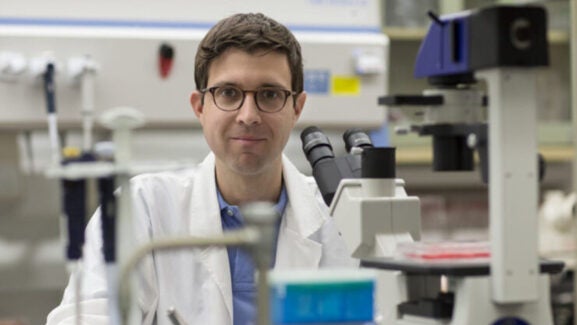
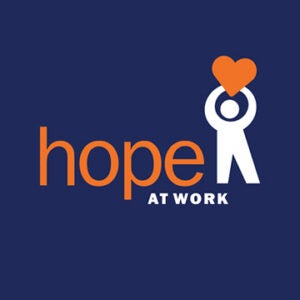
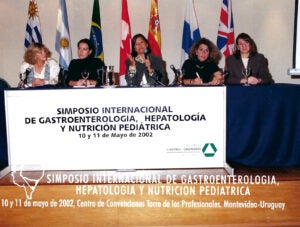
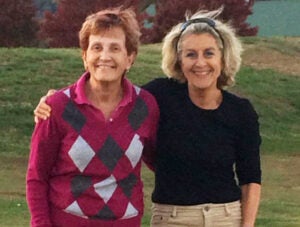

Sylvana is a gem! We would not be able to care for our patients without her! I did not know she is a pediatrician!
Sylvanva, it is so touching to read your story. You have always been remarkable. It is wonderful to read about your journey and to see you publicly recognized for the impact you make on especially vulnerable patients. The speech-language pathology team has all worked with you and witnessed firsthand how you care for and engage with patients.
Sylvana’s gifts are remarkable. She connects so beautifully with our patients and families, especially important as the issues discussed can be sensitive. She adds another therapeutic layer to patient visits.
I am so happy to see her essential work recognized and affirmed.
Thank you Sylvana for your service, dedication and sensitivity to our patients and their needs. We are so very fortunate to have you here at UVA health! ¡Dios lo bendiga!
Sylvana, thank you for teaching me that “elle” can be used instead of “ello” or “ella” for nonbinary Spanish-speaking patients. I so appreciate your kindness, thoughtfulness, and expertise.